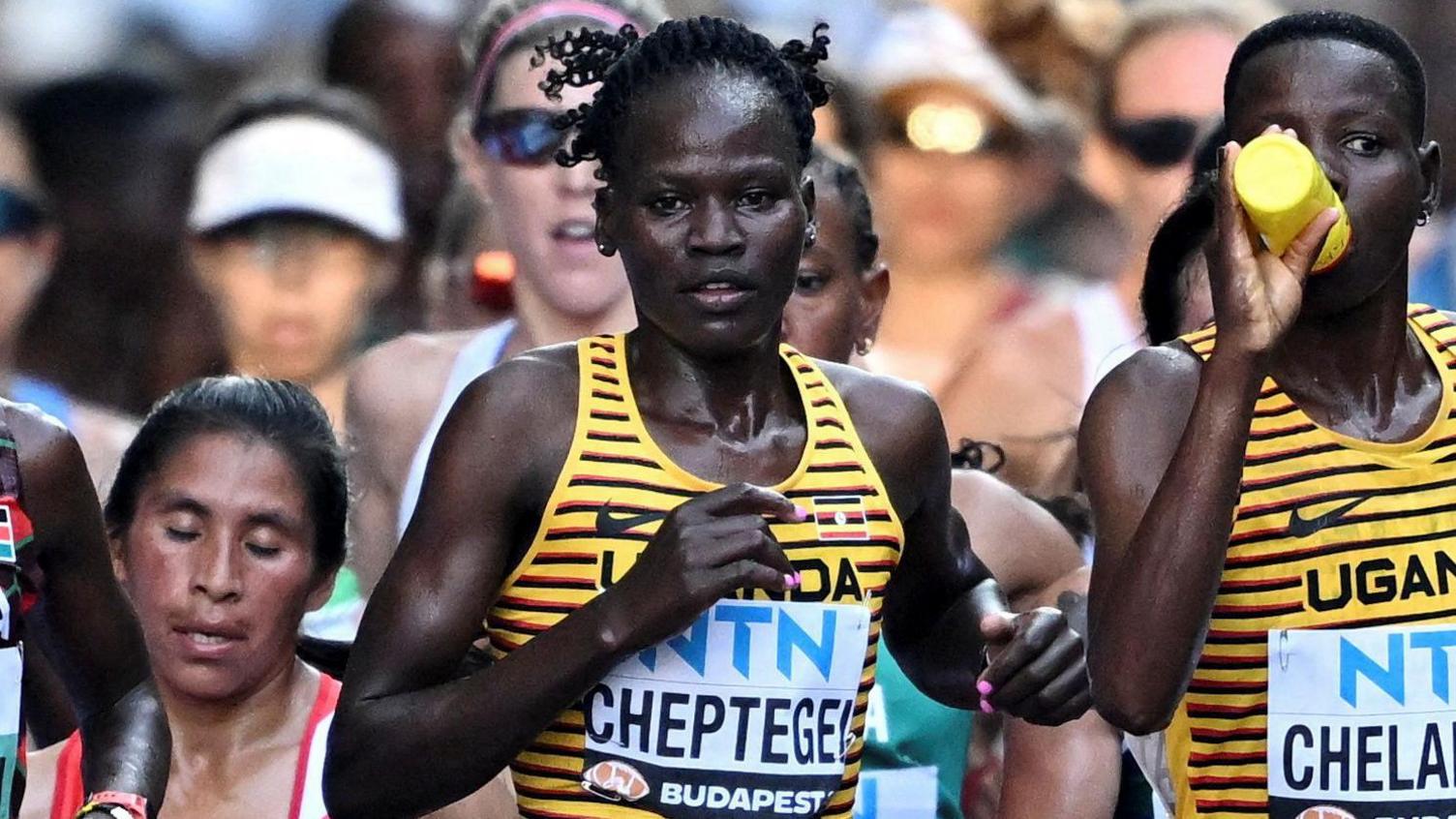I saw athlete on fire running towards me after attack, neighbour tells BBC
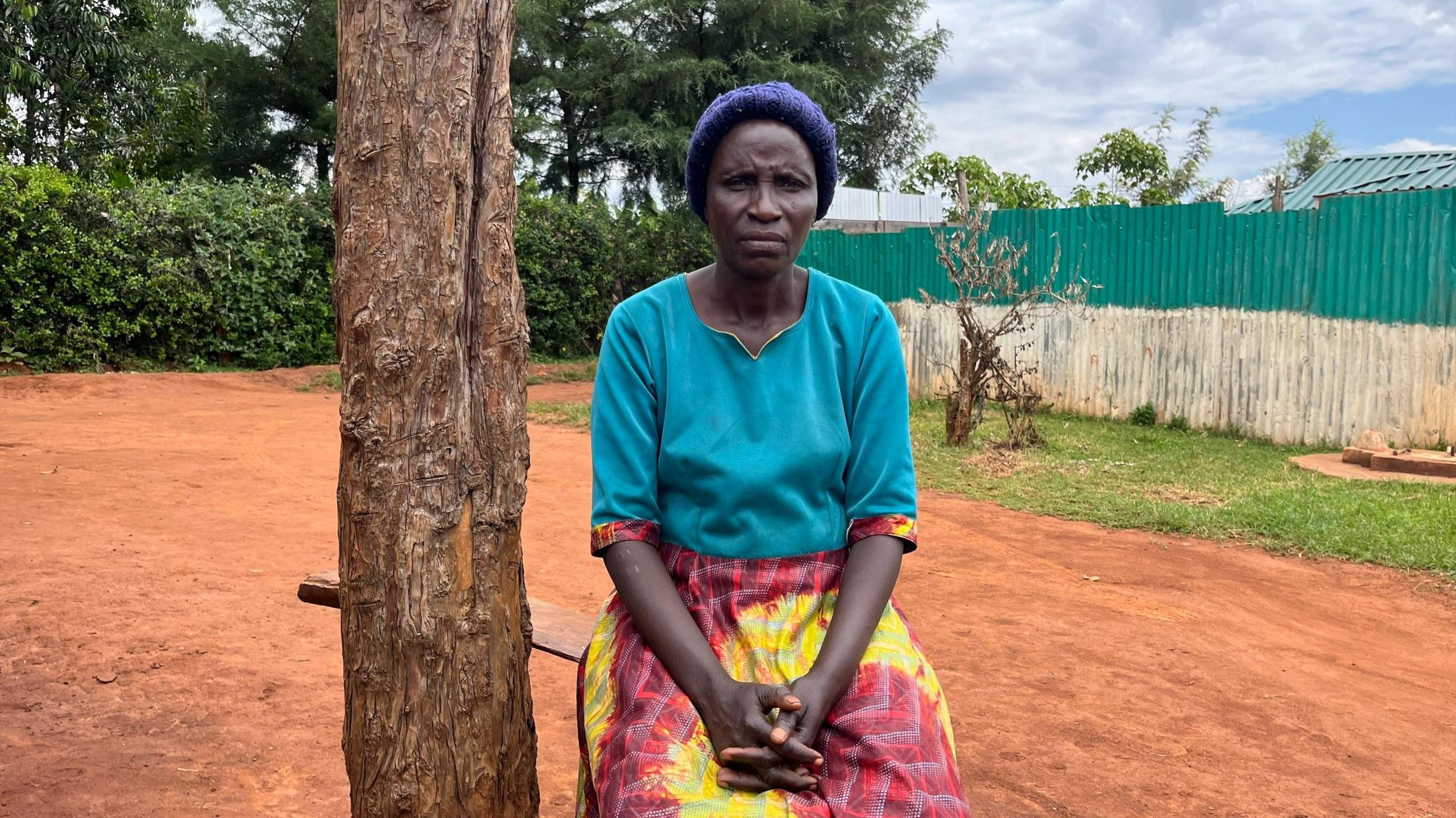
Agnes Barabara said she tried to help her neighbour Rebecca Cheptegei
- Published
Warning: This article contains details some readers may find disturbing
"I was in the house and heard people screaming 'fire'," Agnes Barabara, the immediate neighbour of Olympic runner Rebecca Cheptegei, tearfully recalls.
"When I came out, I saw Rebecca running towards my house on fire, shouting: help me."
Outside the house in north-west Kenya where the 33-year-old athlete lived, flowers have been placed on grass that was charred as she rolled on the ground to put out the flames engulfing her.
Ms Cheptegei died on Thursday from injuries sustained when her former partner allegedly doused her with petrol and set her ablaze days earlier while at home with her two daughters.
“As I went to look for water and started calling out for help, her assailant appeared again and doused more petrol on her," continues Ms Barabara.
“But then he too got burned and he ran off towards the garden to try to put it out. We then went to help Rebecca.”
Ms Barabara says she had never seen anyone “burn alive” before, and couldn’t eat for days after the incident.
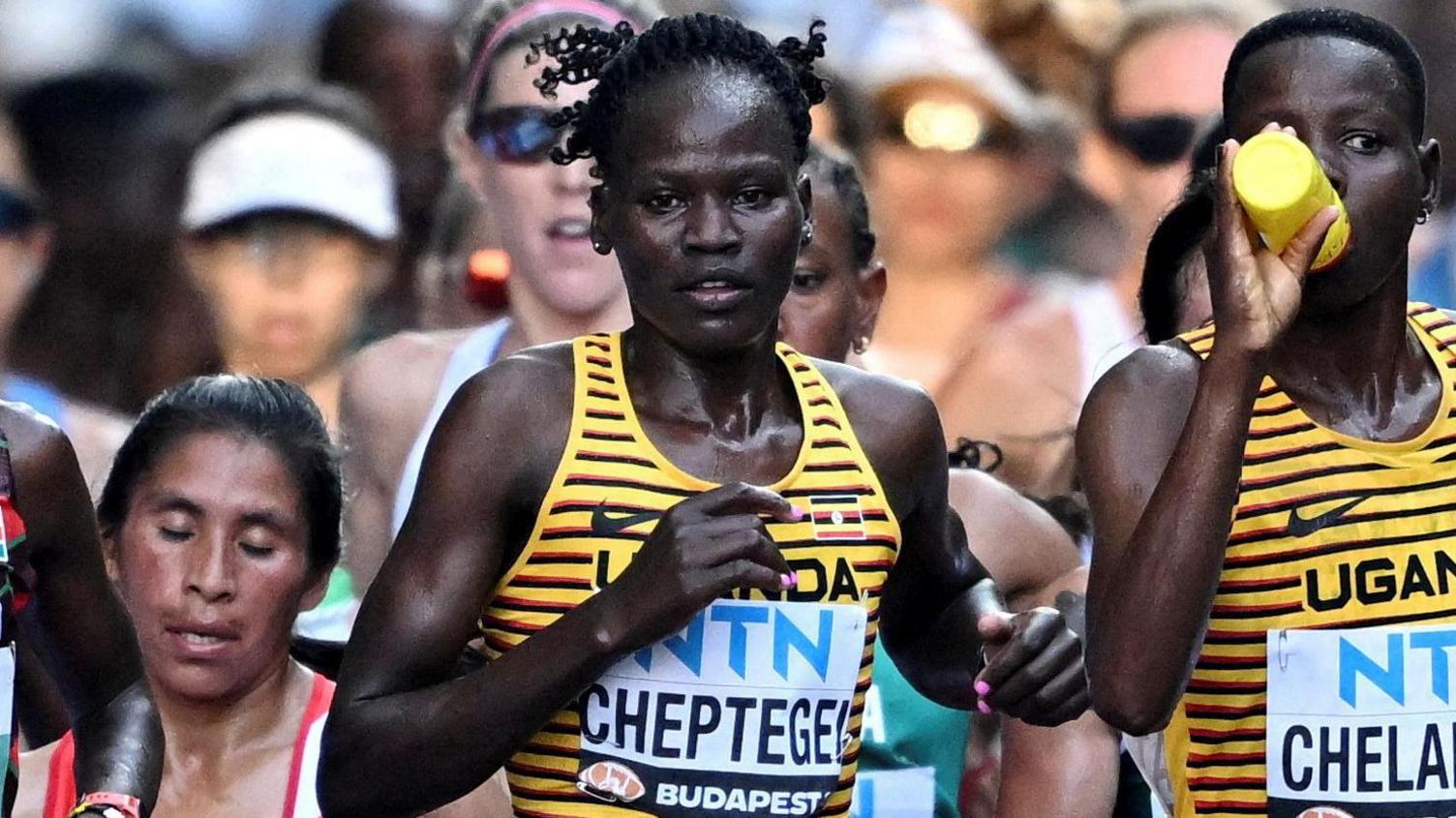
Rebecca Cheptegei came 44th in the marathon at the Paris Olympics
“She was a very good neighbour and just recently she shared with me maize she’d harvested,” adds the neighbour.
Police are treating the death as a murder, with Ms Cheptegei's ex-partner named by police as the main suspect.
Local administrators said the two had been in conflict about the small piece of land where Ms Cheptegei lived, with the case awaiting resolution.
He will be arraigned in court on charges once he is out of hospital, where he continues to recover from injuries he sustained during the incident.
“We have opened a file, investigations are at an advanced stage,” said divisional criminal investigations officer Kennedy Apindi.
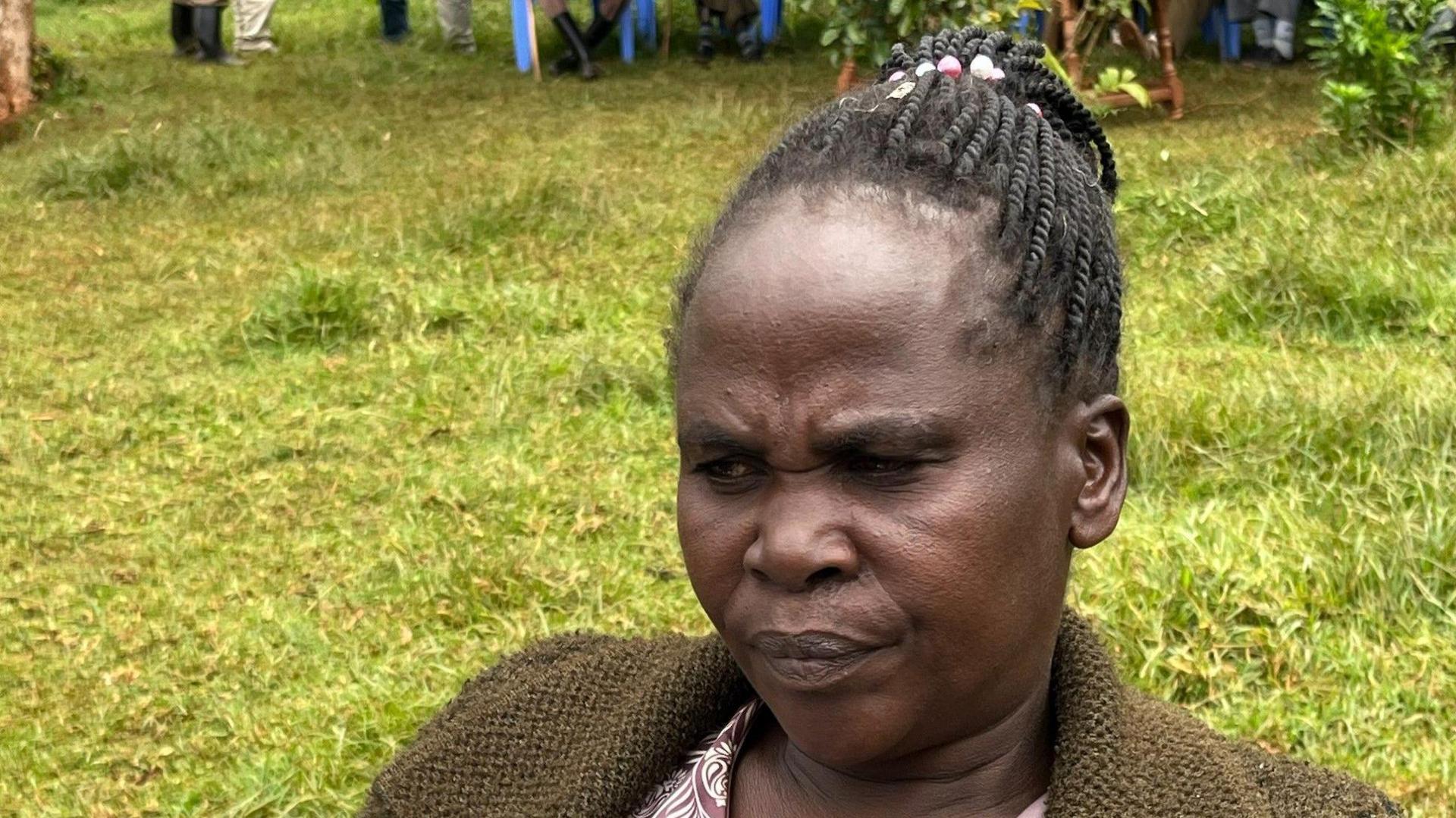
Rebecca's mother Agnes Cheptegei remembers her daughter
Ms Cheptegei's mother Agnes said her daughter "was always obedient as a child, and very kind and jovial all through her life".
Emmanual Kimutai, a friend and neighbour who attended school with Ms Cheptegei, described her as a "very exciting" and "determined" person.
“Even in primary school she was already doing very well in athletics, she was our champion," Mr Kimutai said.
The Olympian was born on the Kenyan side of the Kenya-Uganda border, but chose to cross over and represent Uganda to chase her athletics dream when she did not get a breakthrough in Kenya.
When she started getting into athletics, she joined the Uganda People’s Defence Forces in 2008 and rose to sergeant rank.
Her career included competing in the Olympics in Paris this year. Although she came 44th in the marathon, people in her home area called her "champion".
She lived in Chepkum, a village in Kenya about 25km (15 miles) from the border with Uganda, in a rural area whose main economic activity is farming.
Residents also tend to cattle and it is common to see cows, goats, and sheep grazing outside homes.
The wider area, called Trans-Nzoia county, is known as Kenya’s biggest producer of maize, which is the main ingredient for the country’s staple food.
Locals at a shopping centre near her house spoke fondly about a woman they sometimes waved at as she trained along the road whenever she was not in competition or training in Uganda.
Kind and humble were the words often mentioned by people there.
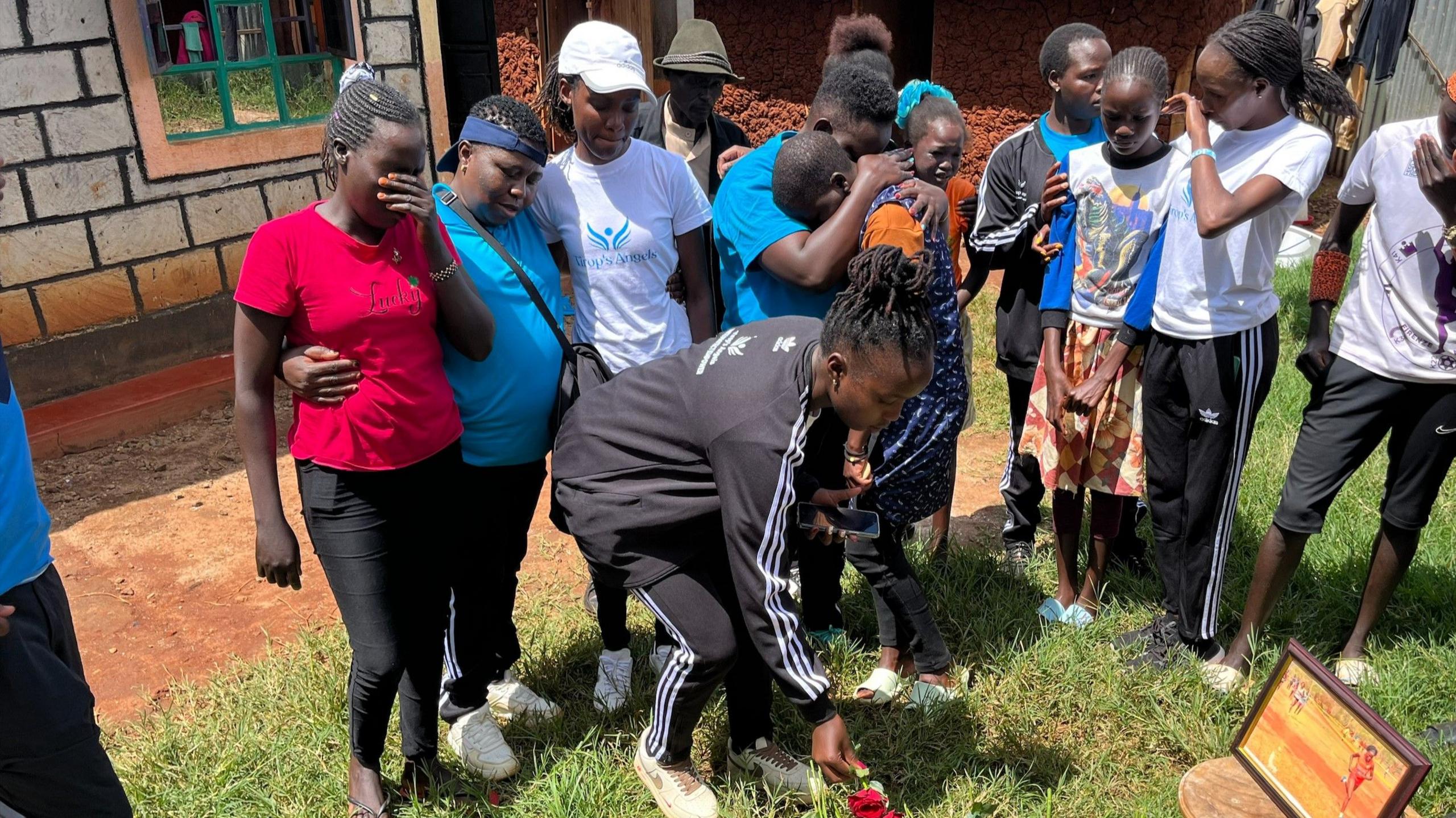
The community mourns the Olympian at her home
While celebrated as an athlete, her personal life was in turmoil. Her former classmate said she did not "have peace" due to the conflict with her ex-partner that began last year.
“They used to live together but began falling out last year because of money," her brother Jacob recalled. "He asked my sister: what do you do with all the money you make?"
Police told the BBC that the two had previously reported domestic disputes at different stations - which they withdrew.
As Ms Cheptegei’s family waits for justice, they continue to prepare her final journey. She will be laid to rest on 14 September at their ancestral home in Bukwo, Uganda.
The Ugandan is the third athlete to be killed in Kenya in the last three years, where intimate partners are named as the main suspects by police.
Athlete-led gender-based violence activist group, Tirop’s Angels, said the trend must end.
“What is heart-breaking is her children witnessed their mother’s attack," Joan Chelimo, a co-founder of Tirop’s Angels said, fighting back tears.
“This violence against athletes must stop.”
If you've been affected by the issues in this story, help and support is available via the BBC Action Line
Related topics
- Published5 September 2024
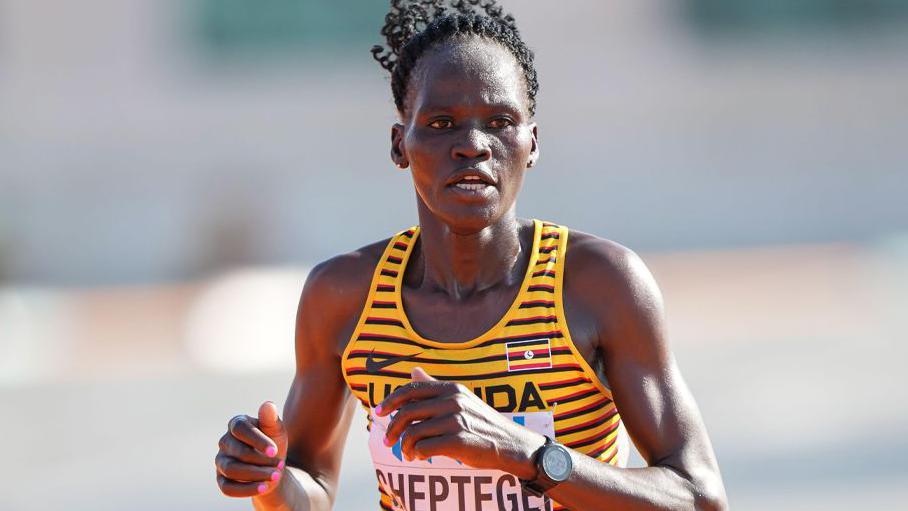
- Published5 September 2024
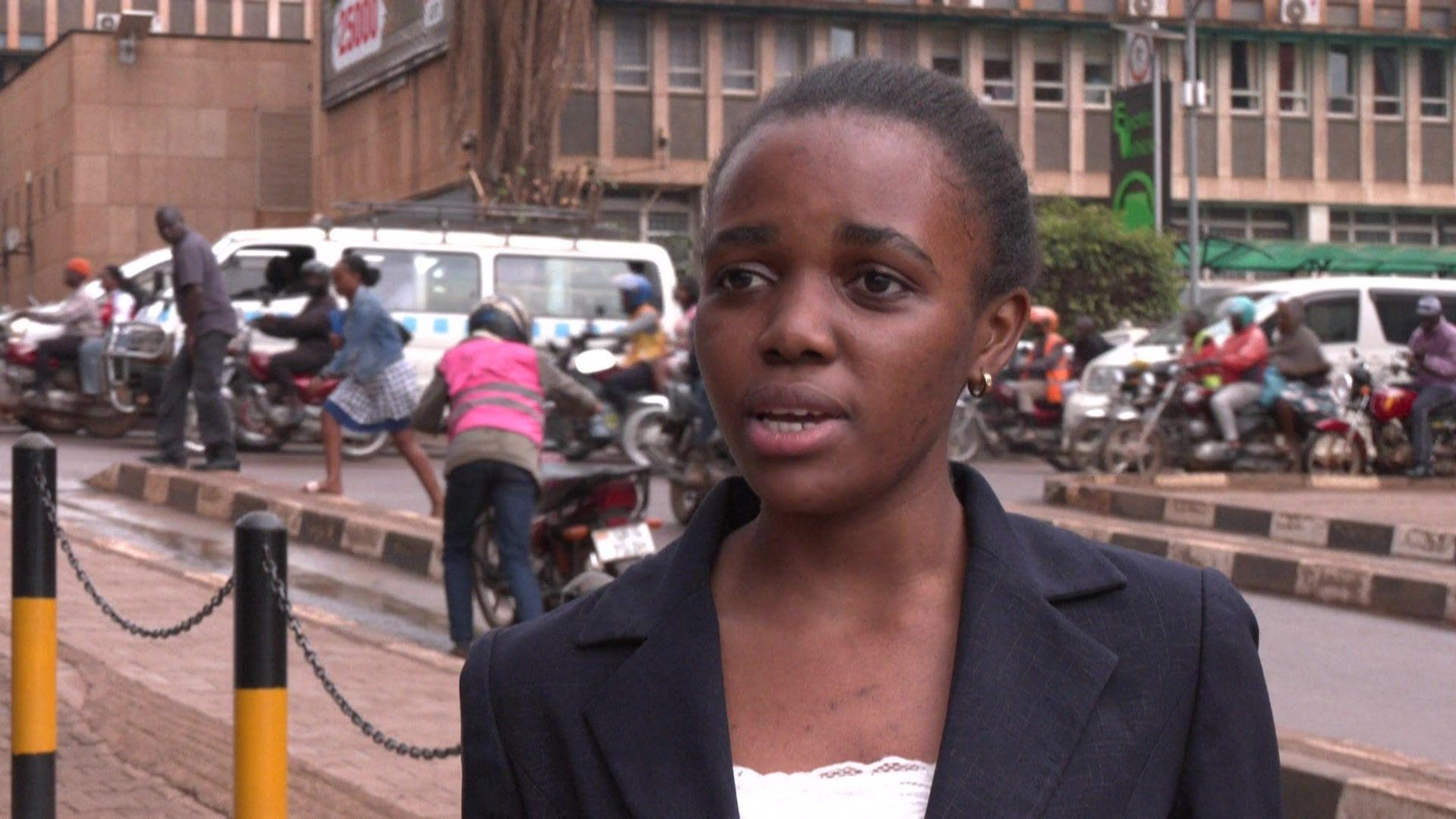
- Published6 September 2024
